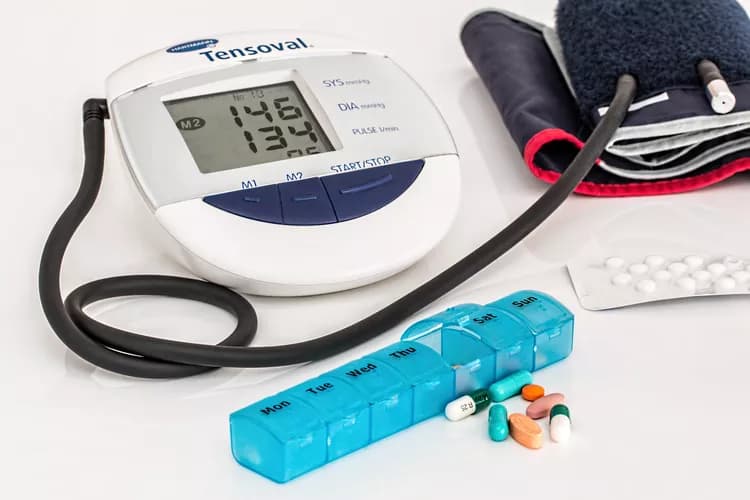
Blood Pressure Better Controlled With 'MAP' For Doctors
A quality improvement program designed to better control hypertension in primary care practices notably improved hypertension control in six months, according to research presented today at the American Heart Association (AHA) Council on Hypertension, AHA Council on Kidney in Cardiovascular Disease, American Society of Hypertension Joint Scientific Sessions 2017, in San Francisco.
One in three American adults has high blood pressure. That number is steadily climbing, despite the fact that high blood pressure can be easily treated using evidence-based guidelines.
Based on the American Medical Association's M.A.P. Framework, the AMA collaborated with Care Coordination Institute Labs, Greenville South Carolina, to create the M.A.P. hypertension improvement program using the latest science in blood pressure control. It stands for measuring blood pressure accurately; acting rapidly to manage uncontrolled blood pressure; and partnering with patients to promote blood pressure self-management.
"The goal of the M.A.P. is to make it easier for doctors and care teams to help people with hypertension effectively manage their blood pressure," said study author Michael Rakotz, M.D., vice president of chronic disease prevention at the American Medical Association (AMA), based in Chicago.
Researchers compared blood pressure measurements of more than 21,000 hypertensive patients from 16 practices, comparing their blood pressures from the start of the study to those taken six months into participating in the MAP intervention.
They found:
- Blood pressure control rose from 65.6 percent to 74.8 percent in six months.
- Twelve of the 16 practices in the study reported notably better blood pressure control in their hypertensive patients.
- Among the uncontrolled patients at the study's start, average blood pressure fell from 149/85 to 139/80 mm Hg.
- Teaching accurate blood pressure measurement technique resulted in reduced systolic pressures in uncontrolled patients in the office.
- There was no notable change in physicians increasing the number of or dosage of anti-hypertensive medications to treat patients with uncontrolled blood pressure.
- There was a significant increase in drop in blood pressure with each medication change made during the study (14 mm Hg), compared to drops in blood pressure with each medication change prior to the study (5.4 mm Hg), implying that either patients are doing better at taking their medications daily or that the medications they are being prescribed are working better, according to Rakotz.
"MAP's evidence-based strategies offer an opportunity for primary care practices to work with patients to quickly improve blood pressure control. And the initiative goes hand-in-hand with national programs focused on reducing the burden of heart disease and stroke, including Target: BP," Rakotz said.
Target: BP™ is a joint initiative between the AHA and AMA aimed at reducing the number of American adults who die each year from heart attack and stroke. The MAP BP improvement program is a central part of the initiative.
High blood pressure contributes to major health problems, including heart attack, heart failure, stroke, kidney failure and more. The American Heart Association's goal is to improve cardiovascular health of all Americans by 20 percent while reducing deaths from cardiovascular disease and stroke by 20 percent by the year.
Materials provided by American Heart Association. Note: Content may be edited for style and length.
Disclaimer: DoveMed is not responsible for the accuracy of the adapted version of news releases posted to DoveMed by contributing universities and institutions.
References:
American Heart Association. (2017, September 17). Blood pressure better controlled with 'MAP' for doctors. Retrieved September 18, 2017.
Related Articles
Test Your Knowledge
Asked by users
Related Centers
Related Specialties
Related Physicians
Related Procedures
Related Resources
Join DoveHubs
and connect with fellow professionals

0 Comments
Please log in to post a comment.